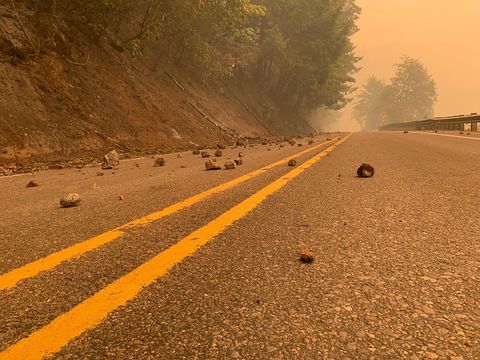Wildfire

Scholars at the Bill Lane Center are engaged in ongoing research to inform policy decisions about wildfire prevention and response. In the past, we have conducted opinion polls assessing public support of wildfire adaptation policies and have hosted an online workshop on wildfire management. We've partnered with researchers at Stanford Medicine to explore the impact of wildfire smoke on human health, and have convened academic researchers, business practitioners and other stakeholders for a symposium exploring the wildfire crisis from multiple angles.
Our focus on environmental governance and climate resilience drives much of our coursework and research on wildfire, as catastrophic blazes have devastated California in the past several years. In 2020, smoke from a historic number of wildfires burning across the state shrouded the Bay Area in darkness. While 2019 brought Public Safety Power Shutoffs – planned blackouts to prevent major wildfires from sparking – 2017 and 2018 saw the most destructive and deadly blazes recorded in the state’s history. Committed to finding solutions for the region's most pressing concerns, we've even participated in a hackathon focused on wildfire-related problems, pitching project ideas for Stanford student teams to tackle in the contest.
We invite you to explore our wildfire research, which aims to address the threats posed by a changing climate, while providing helpful tools, reporting and research to those who make decisions that impact California and the West.
Affiliated Researchers
Subprojects
We frequently conduct public opinion polls to assess sentiment about wildfire adaptation policies.







